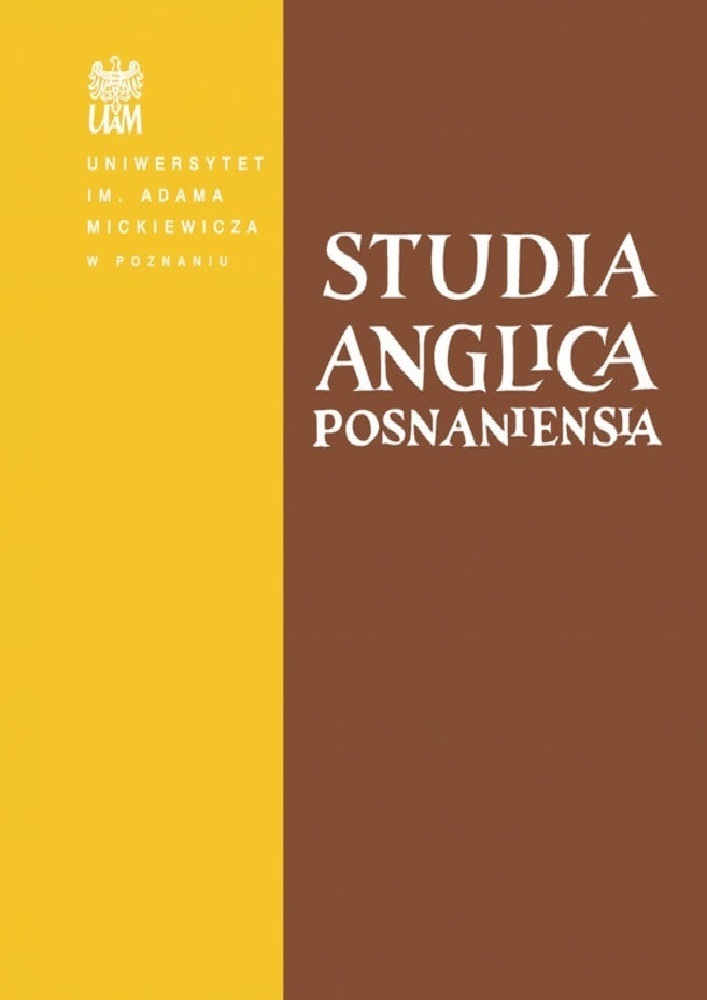Abstract
This article investigates the intersections between Shakespeare’s Hamlet and a popular TV series Sons of Anarchy (SOA), loosely based on the Shakespearean original. The crime drama series revolves around an outlaw motorcycle club that literally “rules” a fictional town in California like an old royal family with its own brutal dynastic power squabbles and dark family secrets. The club is governed by an unscrupulous President Clay and an equally violent, though more conflicted, Vice President Jax Teller, the son of the late President, who had died in mysterious circumstances. In the article I argue that the popularity of the series lies not in its graphic scenes of violence, over-the-top Harley chases, and sex intrigues, but rather in its Shakespearean and Renaissance structure. SOA, dubbed as “Hamlet on Harleys”1, is an appropriation rather than an adaptation of Shakespeare’s tragedy, which makes it a truly transmedial phenomenon. The article investigates a fascinating blend of seemingly marginal elements of modern American culture and the canonical British tragedy. It also addresses the connections between the lifestyles of the so called outlaw MC clubs and the early modern family structure as presented in Hamlet, focusing on the issues of power and gender relations.
References
Shakespeare, William. 2006 [1603]. Hamlet. London: The Arden Shakespeare.
Sons of Anarchy. Complete seasons 1–7. 20th Century Fox. DVD.
Aughterson, Kate. 2002 [1998]. Gender and sexuality. In Kate Aughterson (ed.), The English Renaissance: An anthology of sources and documents, 417–421. London: Routledge.
Barber, Cesar L. 1980. The family in Shakespeare’s development: Tragedy and sacredness. In Murray M. Schwartz & Coppélia Kahn (eds.), Representing Shakespeare: New psychanalytic essays, 188–202. Baltimore: Johns Hopkins University Press.
Belsey, Catherine. 1999. Shakespeare and the loss of Eden: The construction of family values in early modern culture. New York: New Brunswick.
Berry, Hellen & Elizabeth Foyster. 2007. Introduction. In Hellen Berry & Elizabeth Foyster (eds.), The family in early modern England, 1–17. Cambridge: Cambridge University Press.
Boose, Lynda E. 1982. The father and the bride in Shakespeare. PMLA 97(3). 325–347.
Bradley, Andrew C. 1992 [1904]. Shakespearean tragedy – Lectures on Hamlet, Othello, King Lear and Macbeth. Hong Kong: Macmillan.
Burt, Richard. 2002. To e- or not to e-? Disposing of Shlockspeare in the Age of Digital Media. In Richard Burt (ed.), Shakespeare after mass media, 1–32. New York, NY: Palgrave. DOI: 10.1007/978-1-137-09277-9_1
Dulaney, William L. 2005. A brief history of ‘outlaw’ motorcycle clubs. International Journal of Motorcycle Studies, November 2005.
Fraser, Antonia. 2011 [1984]. The weaker vessel: Woman’s lot in seventeenth-century England. London: Phoenix Press.
Furness, Hannah. 2015. Benedict Cumberbatch: Being a father has made me a better Hamlet. The Telegraph. http://www.telegraph.co.uk/news/celebritynews/11923143/Benedict-Cumberbatch-being-a-father-has-made-me-a-better-Hamlet.html (accessed 27 August 2016).
Grazia, Margreta de. 2007. Hamlet without Hamlet. Cambridge: Cambridge University Press.
Henderson, Diana E. 2007. From popular entertainment to literature. In Robert Shaughnessy (ed.), The Cambridge companion to Shakespeare and popular culture. Cambridge: Cambridge University Press. DOI: 10.1017/CCOL9780521844291.002
Houlbrooke, Ralph A. 1984. The English family 1450–1700. London: Longman.
Lanier, Douglas. 2002. Shakespeare and modern popular culture. Oxford: Oxford University Press.
Macfarlane, Alan. 1978. The origins of English individualism: Some surprises. Theory and Society 6(2). 255–277. DOI: 10.1007/BF01681752
National Gang Report 2015. 2015. https://www.fbi.gov/file-repository/national-gang-report-2015.pdf (accessed 28 August 2016).
Novy, Marianne. 1981. Shakespeare and emotional distance in the Elizabethan family. Theatre Journal 33(3). 316–326.
Sanders, Julie. 2006. Adaptation and appropriation. London and New York: Routledge Taylor & Francis Group.
Smith, Emma. 2007. Shakespeare serialized: An Age of Kings. In Robert Shaughnessy (ed.), The Cambridge companion to Shakespeare and popular culture, 134–149. Cambridge: Cambridge University Press. DOI: 10.1017/CCOL9780521844291.008
Stone, Lawrence. 1977. The family, sex and marriage in England 1500-1800. New York, NY: Harper & Row.
Walker, Garthine. 2007. Keeping it in the family: Crime and the early modern household. In Helen Berry & Elizabeth Foyster (eds.), The family in early modern England, 67–95. Cambridge: Cambridge University Press.
Wikipedia contributors. Sons of anarchy. In Wikipedia: The Free Encyclopedia. https://en.wikipedia.org/w/index.php?title=Sons_of_Anarchy&oldid=734977803 (accessed 26 August 2016).
Young, Bruce W. 2008. Family in the age of Shakespeare. Westport: Greenwood Publishing Group.
